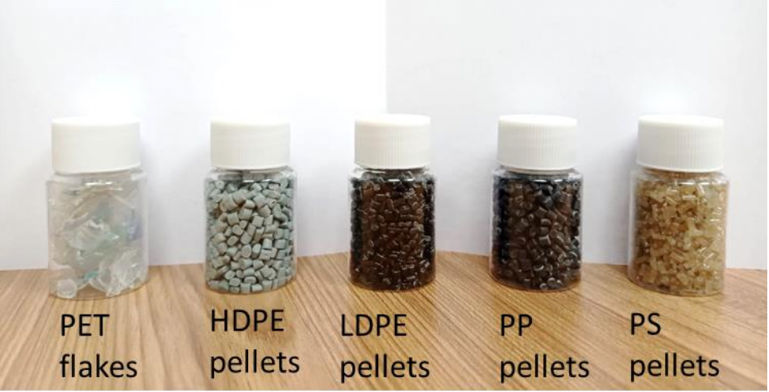GREEN COLLECT - FAQ
Housing estates need to centralise the storage of recyclables at designate location (such as refuse room, storage room, etc.) to facilitate regular collection by the operators of GREEN@COMMUNITY and other EPD contractors of various recycling programmes based on the average quantity of recyclable recovered by the housing estates. Generally, the amount of recyclable should be 200kg or above for each collection. For the initial stage, flexible arrangement could be made referring to the current quantity of recyclable recovered by the housing estatess. In the medium term, the EPD Green Outreach team will provide educational and promotional supports to enhance both the quantity and quality of recyclables recovered by the housing estate.
According to the quantity of recyclables, the EPD will work with property management to develop regular on-site recycling services. Due to the quantity of recyclables will be affected by various factors, a designated "QR code" will be provided to the participating housing estates. The property management only needs to scan the QR code when storing a certain quantity of recyclables or having special needs and complete the electronic forms for requesting services including ad-hoc collection, apply for recycling bins, publicity materials, etc., thus saving the complex liaison work of property management.
Downstream plastic recyclers will further process the waste plastic, including sorting, shredding, washing and pelletising and other corresponding recycling processes to produce recycled raw materials (e.g. recycled rubber pellets) or recycled products, which will be supplied to local and exported to overseas markets for proper handling of waste plastics.

To ensure that the waste plastics collected are properly handled, the contractor is required to implement a comprehensive monitoring plan including installation of Global Positioning System logging devices on collection vehicles, as well as electronic data recording and surveillance camera systems at processing plants. On the other hand, the EPD will conduct regular inspections and spot checks to monitor the performance of contractor on various aspects of collection and processing of waste plastics. Furthermore, the service fee for the contractors are based on the weight of the recycled raw materials or products so as to establish public ’s confidence in waste plastic recycling. EPD staff will review and follow up on various operating rules with the contractors to ensure that the collection and processing services provided by the contractors comply with the contractual and relevant legal requirements. If you are interested, you may visit the EPD's Waste Reduction webpage for more details.
Public can put the clean waste plastics into the recycling bins. Various types of plastic products can be recycled under the “GREEN COLLECT”, including plastic bags (e.g. vest bags, rice bags, plastic bags packaging, etc.); plastic containers ( e.g. plastic buckets, plastic boxes, microwave plastic boxes, cheese cups, tofu boxes, etc.); Polyfoam (e.g. fruit nets, polyfoam boxes, styrofoam anti-collision materials, etc.); and plastic utensils, plastic drinking tubes, CDs, bubble wrap packaging and other plastic packaging materials, etc. In addition, some waste plastics should not be put into recycling bins, such as plastic products with metal, rubber and silicone products, clay and adhesive tapes and other composite materials as the recycling process is complicated, and there are not enough suitable recycling outlets on the market at present.
